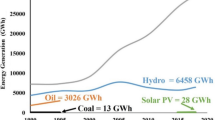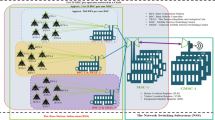Abstract
An optimal utilization problem for a class of renewable resources system is investigated. Firstly, a control problem was proposed by introducing a new utility function which depends on the harvesting effort and the stock of resources. Secondly, the existence of optimal solution for the problem was discussed. Then, using a maximum principle for infinite horizon problem, a nonlinear four-dimensional differential equations system was attained. After a detailed analysis of the unique positive equilibrium solution, the existence of limit cycles for the system is demonstrated. Next a reduced system on the central manifold is carefully derived, which assures the stability of limit cycles. Finally significance of the results in bioeconomics is explained.
Similar content being viewed by others
References
Clark C W.Mathematical Bioeconomics: the Optimal Management of Renewable Resources[M]. 2ed. New York: John Wiley & Sons, Inc, 1990,39–340.
Mesterton-Gibbons M. On the optimal policy for combined harvesting of independent species[J].Natural Resources Modelling, 1987,2(1):109–134.
Mesterton-Gibbons M. On the optimal policy for combined harvesting of predator and prey[J].Natural Resources Modelling, 1988,3(1):63–89.
Mesterton-Gibbons M. A technique for finding optimal two-species harvesting policies[J].Ecological Modelling, 1996,92(2):235–244.
Pradham T, Chaudhuri K S. A dynamical reaction model of a two-species fishery with taxation as a control instrument: a capital theoretic analysis[J].Ecological Modelling, 1999,121(3):1–16.
Fan M, Wang K. Optimal harvesting policy for single population with periodic coefficients[J].Math Biosci, 1998,152(1):165–177.
Feichtinger G, Novok A, Wirl F. Limit cycles in intertemporal adjustment models[J].J Economic Dynamics and Control, 1994,18(2):353–380.
Dockner E, Local stability analysis in optimal control problems with two state variables[A]. In: Feichtinger G Ed.Optimal Control Theory and Economic Analysis[C]. Amsterdam: North-Holland, 1987,30–45.
Liski M, Kort P M, Novak A. Increasing returns and cycles in fishing[J].Resources and Energy Economics, 2001,23(4):241–258.
Seierstad K, Sydsaeter A.Optimal Control Theory with Economic Applications[M]. Amsterdam: North-Holland, 1987,8–25.
Carlson D, Haurie A B, Leizarowits A.Infinite Horizon Optimal Control[M]. Berlin: Springer-Verlag, 1991,24–27.
Guckenheimer J, Holmes P.Nonlinear Oscillations, Dynamical Systems, and Bifurcations of Vector Fields[M]. Berlin: Springer-Verlag, 1983,117–125.
Author information
Authors and Affiliations
Additional information
Communicated by Lin Zong-chi, Original Member of Editorial Committee, AMM
Foundation item: the National Natural Science Foundation of China (19971066)
Biography: HE Ze-rong (1963 ∼), Associate Professor, Doctor
Rights and permissions
About this article
Cite this article
Ze-rong, H., Mian-sen, W. & Feng, W. Optimal dynamical balance harvesting for a class of renewable resources system. Appl Math Mech 25, 475–482 (2004). https://doi.org/10.1007/BF02437532
Received:
Revised:
Issue Date:
DOI: https://doi.org/10.1007/BF02437532




